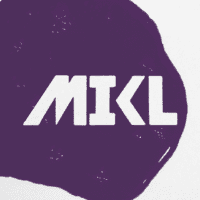5 Good Minutes with Rob Schuham, Co-Founder of COMMON, Action Marketing and Undercurrent
By The Denver Egotist / / Rob Schuham “grew up” professionally at storied ad agencies such as Chiat/Day in San Francisco in the 1980s and early ’90s, and worked at Ayer (New York and Chicago) right after. He’s been on the client side, too: As Marketing Director, Schuham re-positioned Schwinn’s Cycling & Fitness brand, and (true to form) launched Spinning, the enduring cardio workout — and a cultural movement unto itself. A marketer and business strategist who’s fascinated by what makes people tick, Schuham is also Founding Partner of Undercurrent, a New York-based global think tank and digital/social consultancy; Co-Founder of Action Marketing, an experiential and digital agency; and Co-Founder of the collaborative brand and creative community COMMON. We caught up with Rob recently — between everything else — to find out how he does it all. Q: What gets you out of bed in the morning? A: The fact that every day seems to turn out differently than I expected. And that every day I know in some way, shape or form, there is an opportunity to learn, grow and make a difference in all my different communications practices. Sounds silly, but it’s actually happening. —— Q: You started experiential and digital agency Action Marketing 17 years ago and have worked with huge, well-known clients — calling the agency “the definitive voice of Experiential Play theory.” What does that concept mean for brands, and why do you believe the shop does it better than anyone else? A: Seventeen years ago, the whole notion of what I started was in the space of “non-traditional marketing.” And the immediate thing I wanted to do was not be like the few other non-traditionalist agencies in that space – meaning that from the get-go, I wanted to paddle even further away from the pack. We ground that into our DNA and it stuck ever since. We were one of the first to drive digital into experiential, for example, and really integrate it into experiential marketing. And we have studied “play theory” to better understand and implement the notion of how to make consumers more playfully open and receptive to an experience, branded or otherwise. Our clients tend to love that we come in with ideas that make them uncomfortable and excited at the same time. —— Q: Action recently was sold to a private-equity-backed North American agency network, for which you now are Vice Chairman and Chief Innovation Officer, and maintains offices in both Boulder and New York. Why? What is it about Colorado — and Boulder and Denver specifically — that keeps your interest here? A: New York is critical for us, as many of our clients are there and it remains the media capital for the United States. At the same time, Boulder and Denver are really becoming a U.S. creativity and entrepreneurial stronghold. It used to be that we had to import most of our talent from major markets. But with the presence of more agency energy in Colorado, we are seeing a thriving community of creative and digital talent. And in the new ventures world, Boulder is a hotbed of startups. I travel a ton both nationally and internationally and have my feet in a few different cities, but there is nothing like driving home from the airport, cresting the hill into Boulder and breathing in the view. So Boulder serves as both a terrific mashup of incredible talent and energy as well as a beautiful respite for me. And Denver on a personal level has gone from a city that I frankly used to avoid going to 17 years ago to being one of the most culturally and gastronomically exciting cities in the country. When I’m in Colorado, I find myself in Denver pretty frequently these days. —— Q: You’re also founding partner of Undercurrent, a New York-based global think tank and digital and social consultancy. Tell us about it and why there was a need for it to be created. A: I started Undercurrent with Josh Spear and, soon thereafter, Aaron Dignan. Web 2.0 was new and gaining traction and most brands were caught with their digital pants down. It was a whole new language, and even their web agencies at the time couldn’t keep up with the accelerating advances. Josh was kind of a lighthouse for the “born digital” generation as both a trend-spotter and blogger, and was getting a ton of requests for consulting from global brands. It was an immediate hit in the digital space, and we continue to grow. We love to reimagine how brands and nonprofits alike operate and participate in the constantly evolving digital landscape. Essentially, we apply a digital worldview to the challenges of complex organizations, and it appears to be working thus far. —— Q: You have a passion for creating movements — specifically, brand and cultural movements. Where did this come from, and what is your latest movement? A: The art and science of movement-making is fascinating to me. I recently gave a keynote address to a group of marketing executives about the past 24 months of collective action that have occurred online. I wanted to blow people’s minds on how movements start to pick up steam and then hockey stick at a certain point of traction, as well as how brands can learn a thing or two from movements such as Occupy Wall Street, Arab Spring, SOPA and KONY. The most successful ones leverage memorable tools and levers to weave into cultural conversations. Brands try and fail time and time again to do something like this, but a few get it right and nail it. We worked on the Ford Fiesta Movement a few years ago and almost accidentally figured it out. We knew we had to be authentic, relevant and interesting, but we weren’t focused on things like creating memes. We sort of learned what to do and avoided what not to do, which was pretty awesome. And we leverage those learnings for all of our clients now. Latest movement? Hmm. The people at Undercurrent have been really inspired by crowd-sourced innovation. We strongly believe that Makerbot and the subsequent democratization of 3-D printing are going to put significant pressure on the closed innovation loops that large corporations protect fiercely. Between that, the expansion of TechShop, which are brick-and-mortar DIY workshops; and our friend Ben Kaufman’s Quirky.com, which helps people take their ideas from concept to store shelves, leveraging community input and influence; we will see a massive game-changing “home inventor” movement that we will be fanning the flames of with a few of our clients. —— Q: There’s a lot of interest and focus now on legitimate corporate social responsibility — not just having a few people or a department in place to fulfill this need, but taking a far more comprehensive look at how business is done. We understand that making social enterprise engaging is a key idea behind COMMON; can you tell us about that? Where did COMMON come from, and where is it going? A: COMMON came out of a workshop Alex Bogusky and I did together a few years ago on values and our mission surrounding the various endeavors we were working on together. Soon thereafter, John Bielenberg of Project M fame joined us. It was born out of a belief that enterprise and brilliant business thinking can come from anywhere – and that this expansive approach can be leveraged to create enterprises that can solve social challenges while creating profitable ventures. This part was being done mostly in reverse, whereby some very progressive companies such as Patagonia and Clif Bar were taking profitable businesses and leveraging their scale and reach to rethink social responsibility. All fantastic, of course. But we wanted to try it differently while taking it one extra step – and that is to inspire, facilitate and launch social enterprise under the aegis of one collaborative brand: COMMON. So where’s it going? Well, it’s really getting exciting now. We have a new management team that includes Mark Eckhardt, COO, and Dan Burrier, now CEO, who before was Chief Innovation Officer at Ogilvy. We’re taking COMMON Pitch to Chile this December. And we’ve already produced three other successful ones this year: NYC, Milwaukee and South Africa. So it’s very international in social business themes and attention. And the notion of literally giving social entrepreneurs a public stage on which to pitch their ideas to the world has been extraordinarily well-received. The even better news is that many of the finalists have received funding for their ideas. And something new is that we are now conducting MBAs (Maniacal Business Attacks) with several established companies and nonprofits to reshape their missions and compasses around the COMMON values. —— Q: You’ve been named Chief Buzz Advisor to Al Gore’s Climate Reality Project. How did that come about, and how does your experience apply to this work? What lessons do you learn from this endeavor that are important to consider for your clients who are not in this space? A: This is an endeavor that originally started as an important and interesting project to work on, but once I really understood the science as well as the urgency, it became a personal passion for me. It’s now my main philanthropic focus, given the enormous amount of work we have to do. It absolutely requires a high level of thinking, and the cool part is that I am working with some of the smartest, most capable people I’ve ever partnered with. The cognitive and cultural challenges of breaking through denial, taking down a PR machine of mistruths that creates doubt and denial, and getting humans to recognize the scale, speed and urgency around global warming is unlike anything I’ve ever worked on. Sadly and ridiculously, it’s been framed as a political issue, so we have a doubly challenging logjam. But I’m confident we’ll break through it so that other organizations, governments and corporations can focus on solutions and how to slow down climate change. Why? Because I believe that truth is ultimately stickier that lies. The thinking that we exercise on this problem goes back to your earlier question on movements. The past two years of work on The Climate Reality Project have helped me to better understand and contextualize cultural conversations. This is useful throughout my work on different brands. Human behavior is what must be understood to message and dialogue with consumers, because consumers are people too. —— Q: You’ve partnered with Alex Bogusky on several of your endeavors. What do you find most impressive about working with him? A: I think I know a different Alex than the people who worked around and under him at CP+B. He and I were friends first before we got into business together. We are also both very different people who happen to share a similar set of values. I hate injustice, and he hates unfairness. We both were able to articulate our respective hot buttons with each other in the pre-COMMON days because we humorously both asked ourselves what made us the most angry. While they are slightly dissimilar in terms of emotional drivers, they meet up in roughly the same place. FearLess and COMMON fell out of our joint desire to empathize with the human condition and try to create a system that rewards fairness and justice, among other things. Most impressive thing? He’s the real deal. The industry hype around his creative brilliance is actually well-deserved. —— Q: What is the thread that runs through all of your interests and companies? A: At the end of the day, it has to be fun. I always say there’s no such thing as a marketing emergency. And while that doesn’t mean we shouldn’t act with a sense of urgency, it does mean that we all have to remember – clients alike – that we chose a profession that’s supposed to be creative and fun. The cultures at every agency and consultancy I am a part of, or invest in, really reflect that. And as strange as it sounds, this really needs to be woven into philanthropic and nonprofit work too. Bielenberg, Bogusky and I throw around a thought pretty often: “If saving the world isn’t fun, who’s gonna do it?” —— Q: You invest in several ventures, including Boulder companies such as Pangea Organics and Justin’s Nut Butter. How do you decide whom to support, and what kinds of issues and opportunities most excite you? A: My investment strategy is simple: I need to understand it completely and embrace the lifestyle from which the idea was born. It’s even better if I can eat it or wear it. I have long believed in organics and been conscious about the role of food. And when I first got involved with Pangea, I didn’t realize just how much the body absorbs through our skin and how toxic mainstream personal care products were. When I invested in Made Movement, I knew that American manufacturing was important, but not how impactful a shift in my own spending as a consumer could be on U.S. job creation. —— Q: What’s next for you? A: I am involved in the launch of a new company called Skoop. The partners include myself; Dr. James Rouse of Optimum Wellness; Greg Stroh, who was a co-founder of IZZE; and Alex. Our first product is “Morning Skoop,” an organic powdered greens and reds drink that actually tastes terrific, as opposed to other products in the category that taste like ass. But we have a pretty lofty mission around solving the absurdly unhealthy condition Americans are in, and our company is not just focused around product, but on creation of content and awareness. I’m excited about where this can go. On the agency side of things, as you noted earlier, I was made Vice Chairman and Chief Innovation Officer for Match Marketing Group, the private-equity-backed agency network that acquired Action Marketing a few months ago. I like the notion of taking things to the next level. Shopper Marketing is the hot buzzword in the CPG and retailer world, and I want to reimagine it as not just promotional trench warfare, but as how to inject a little more joy and responsibility into the consumer experience. Being on the acquirer side of things, I’m also learning new skills as we look for other agencies to bring into the vision. I feel like such a private equity novice, but the hunt is going to be fun.






Comments
Anonymous October 16, 2012
Very insightful, insanely
Very insightful, insanely creative, coupled with a huge injection of soul that I think is very hard to come by. Not many people could package that all together…keep leading the charge Rob.
BS October 19, 2012
Stay away from this man.
Stay away from this man. That’s all I’m going to say.
Carmel Hagen October 22, 2012
Rob’s one of the best mentors
Rob’s one of the best mentors I’ve had in my life to date. And he trusts twenty-somethings to rock it, even without the comfort of years of experience — which is really important when you’re a twenty-something that just wants to rock it, even without years of experience. So lucky and grateful to have had him as a major influence, same goes for Alex.
Anonymous March 1, 2013
I’m with the person above who
I’m with the person above who begs you to “Stay away from this man”.
Anyone consorting with Greg Stroh, Rouse or anyone involved with Mix1 better have a cut-throat lawyer at their dispense.
This guy feels similarly: https://vimeo.com/60257217
pass is mix1
Anonymous February 12, 2014
Sometimes I read articles
Sometimes I read articles about myself, then I sit back and think of myself – thinking about myself… -RS